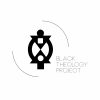Call for Papers to Celebrate Black Women’s Contributions in the Struggle for Liberation
Due Date: 30 June 2020
VukaniBantuTsohangBatho invites poets, artists, writers, to contribute essays that seek to (re)define what it means to embody ubuntu. The call is dedicated to African women of all social standing – including but not limited – to scholars, academics, writers and professionals – and from the diaspora communities.
The main intention of this call for submissions is to collect work that speaks to women who have embodied ubuntu in dispossession, displacement, disinheritance, and other social spheres. The essays should consider feminist, womanist and other theories of being women in social spaces and historical timelines.
This call is for non-fiction essays/opinions in English on the subject and theme of women who embody ubuntu. The essays should be between 2000 and 4000 words in length.
Please submit essays to the following email address: sandikobele@gmail.com, cdrsabelo7@gmail.com, and any other inquiries call (012) 429 8340 or (067) 083 7699.
The essays do not have to reflect only on the women that are included here, we accept other proposals outside the women included as long as they speak to the theme of this call.
Each essay should be accompanied by a 200-500-word biography of each contributor and a high-resolution JPEG photo (<1mb) in colour. Contributors are allowed to submit more than one essay/opinion piece.
Submissions close on June 25, 2020.
Background
In times of struggle, for women to survive, they are burdened by different forms of madness. Whether to leave their children at home, while caring for those of their oppressors to afford to feed their children, is madness.
Some choose to join other forms of madness standing with men, carrying guns fighting for the liberation of their families, husbands, sons and daughters. Fighting for the right to exists in a world that despises their being. However, the same women when it is time to record the contributions made by them the ink usually runs dry, husbands, and sons emerge as the heroes of the struggle. And this is the story of women across the world.
It is against the above deliberations that this collection of essays will use Nomzamo Winnie Madikizela Mandela as a case study to reflect on black women’s contributions in the struggle against slavery, poverty, injustices, and colonialisation. Through the media, Winnie was painted as ‘anti-ubuntu’ & unity when she refused to ask for forgiveness for her role in the struggle for liberation. Particularly, because the TRC of South Africa had understood and defined ubuntu as acts of social cohesion, nation-building. Ubuntu was viewed as a pursuit of positive values like unity, forgiveness, peace and reconciliation.
Authors, academics, public intellectuals, activists, educators, practitioners, literary and visual artists are, therefore, invited to enable women like Winnie Mandela to be custodians of what we mean when we argue “Umntu ngumuntu ngabantu”. Enabling black women to tell their own stories as they have known and experienced them in the struggle for liberation. To argue Winnie effectively personified ubuntu, even though her refusal to apologise and ask for forgiveness for her role in the struggle against apartheid made her a villain in a time she was supposed to be a heroine.
Women such as Mpho Hani (Chris Hani’s wife), Mrs Konile who was one of the Gugulethu Seven Mothers whose son was brutally murdered by the security forces in Gugulethu in 1985 are also relevant to this collection. When Mrs Konile was asked if she can forgive by the TRC, Mrs Konile asked: “How can I forgive when I am not a human being”. One would think Mrs Konile read Prof Ramose Mogobo when he points out that a human being in the world of the living is um’ntu when they are able to give an individual response to the fundamental challenges of humanity, which cannot exist when one’s stability of being has been disturbed by the sense of injustice to the core. However, Mrs Konile knew this implicitly from her inheritance of iSintu, from Abantu (Bantu). She understood that it is only through justice that we are restored into authentic humanity.
Examples and ideas of other women who embodied ubuntu:
● The Sharpeville women
● The Gugulethu Seven Mothers who appeared at the TRC of South Africa
● Nameless women who raised children without their husband because of migrant labour
● Women whose sons have suffered police brutality in the Americas
● Women like Nina Simone, Brenda Fassie, Cesaria Evora, Miriam Makeba, Charlotte Maxeke
● Queen Nzinga of Angola, prophetess Mantsopa, Queen Manthatisi, Queen Modjadji, Nongqawuse, Mkabayi and others
● Nontetho Nkwenkwe
● ‘kitchen girls’, ‘farm girls’, ‘kasi girls’, ‘working’ girls
● The Marikana widows,
● The Elmina women
● Women like Cheryl Zondi, Uyinene Mrwetyana
This book will be published by Geko Publishing in its Academica series. The book is edited by Sandiswa Lerato Kobe (PhD candidate at VU Amsterdam, UP) and team. It will be released in the last quarter of 2020.
About Geko Publishing (Pty) Ltd
Geko is an independent publisher of over 20 titles in English, Setswana and Sesotho – ranging from fiction, to poetry and non-fiction, with over 10-years’ experience in publishing with multiple literature awards. www.gekopublishing.co.za
Ms Sandiswa Lerato Kobe Lecturer Dept. of Christian Spirituality, Church History & Missiology E-mail: Kobesl@unisa.ac.za

Facebook Comments